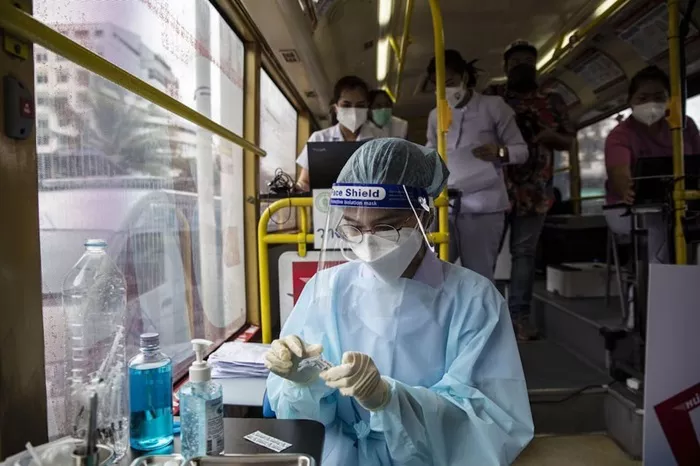Thailand is taking proactive steps to enhance its vaccine preparedness in the face of emerging disease threats, with a focus on strengthening public health infrastructure and international collaboration.
The 11th National Vaccine Conference, held from November 13-15, 2024, at The Berkeley Hotel Pratunam in Bangkok, brought together experts from both public and private sectors, as well as international partners, to discuss the latest advancements in vaccine science and policy. Themed “Vaccines in a Borderless World,” the event served as a platform for sharing knowledge on vaccine research and development, production, and management to improve immunisation programs.
Thailand’s Preparedness for Disease Outbreaks
One of the conference’s key sessions featured a special lecture titled “Thailand’s Readiness to Tackle Emerging and Re-emerging Diseases,” delivered by Clinical Professor Emeritus Piyasakol Sakolsatayadorn, President of Mahidol University Council and former Minister of Public Health. The lecture reflected on the lessons learned from the COVID-19 pandemic and the measures taken to fortify Thailand’s public health infrastructure to combat future outbreaks.
Professor Piyasakol stressed the importance of a long-term strategy to enhance vaccine security and accelerate research and development efforts. He highlighted the success of a 100-day action plan designed to expedite the development of vaccines in response to emerging threats.
Robust Vaccine Infrastructure in Thailand
The lecture also underscored Thailand’s readiness, showcasing the country’s comprehensive vaccine infrastructure, which includes:
- Advanced vaccine research centres
- Animal testing facilities for preclinical studies
- Semi-industrial-scale vaccine manufacturing plants
- Clinical research centres
- Regulatory bodies ensuring vaccine quality and safety
- Investments in human resources for academic institutions and research organisations
Collaboration Key to Vaccine Development
In his closing remarks, Professor Piyasakol emphasized the importance of collaboration across sectors to advance vaccine research and development. He noted that effective vaccine development, from initial research to final production, requires the coordinated efforts of government agencies, private entities, and international networks.
Highlighting the significance of global partnerships, Professor Piyasakol reaffirmed that international cooperation is essential in addressing global health challenges and securing long-term health security.
The 11th National Vaccine Conference successfully reaffirmed Thailand’s commitment to advancing vaccine preparedness and fostering collaborative efforts both at home and abroad to combat emerging public health threats.
Related Topics
Comparing Camel, Cow, and Goat Milk: Which Is Best for Diabetes and Heart Health?
Experts Highlight Link Between Air Pollution and Rising Pneumonia Cases in Delhi


































